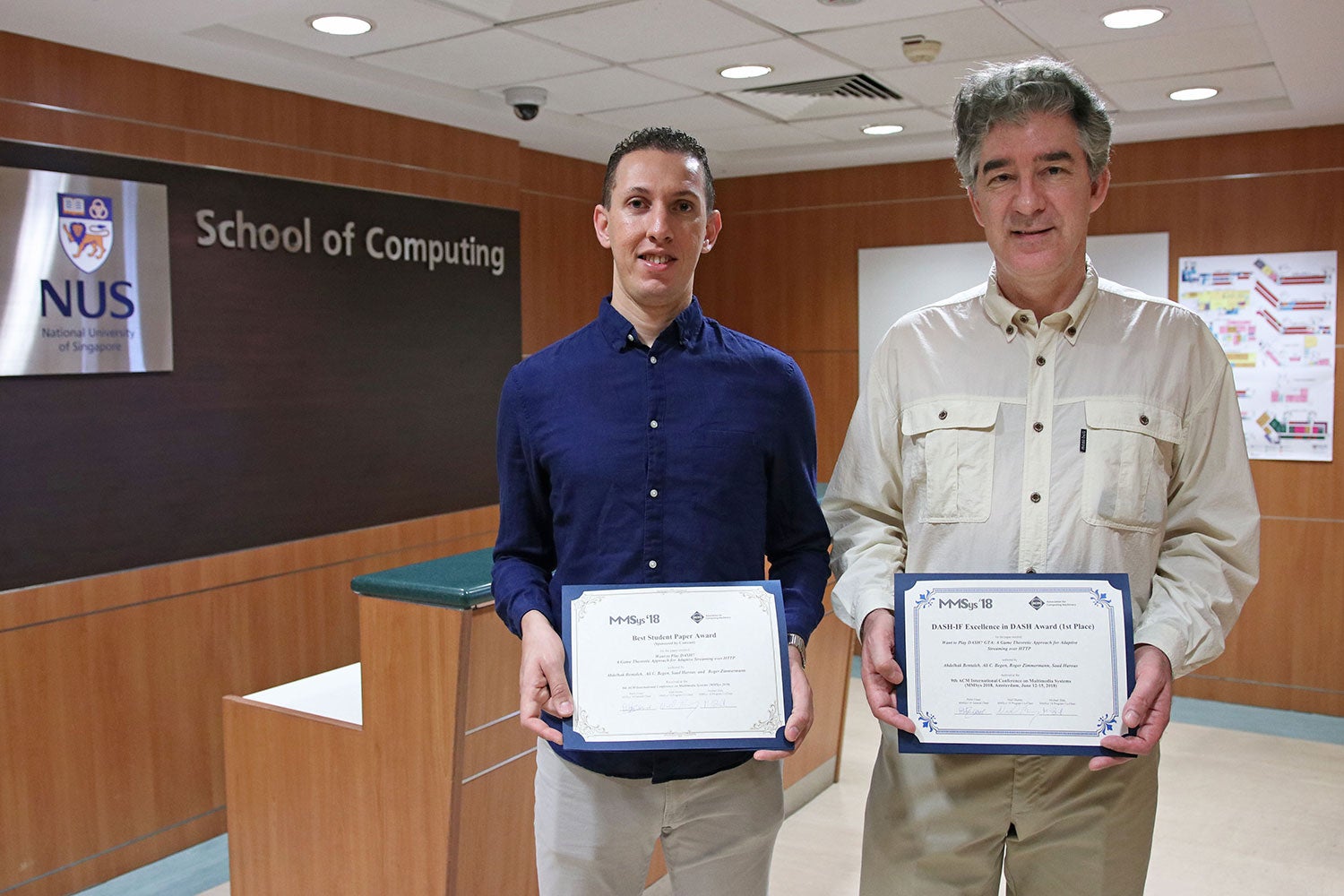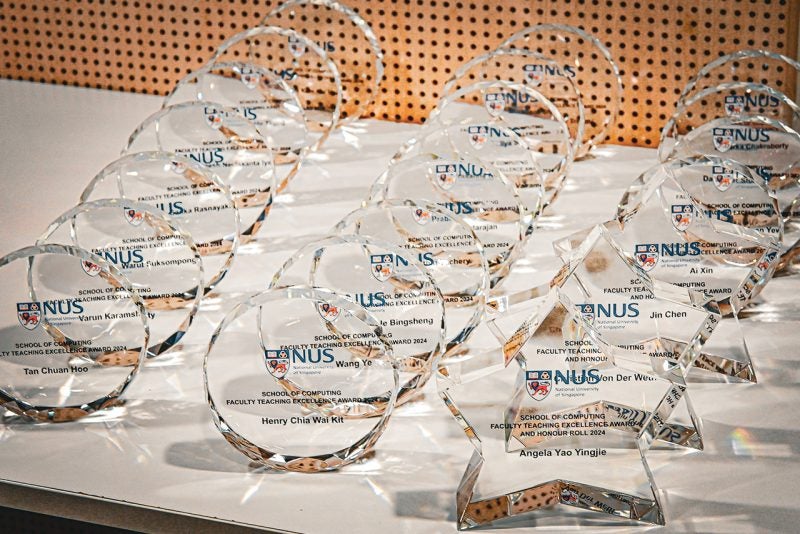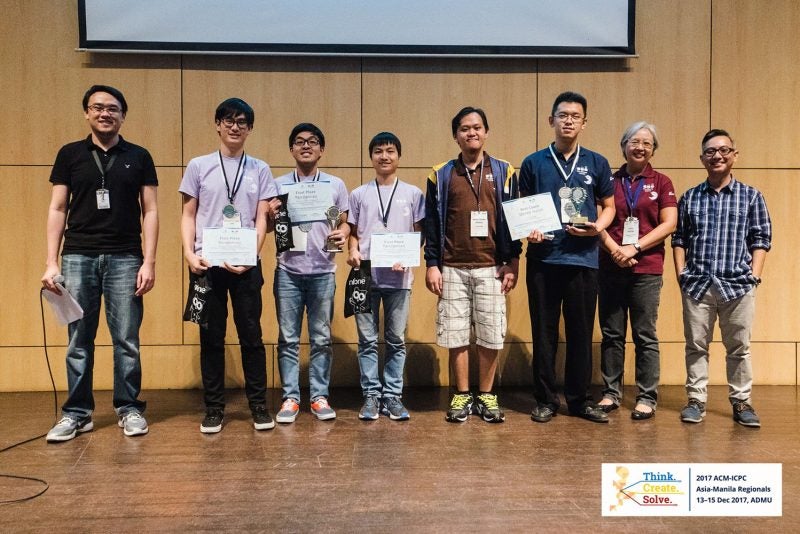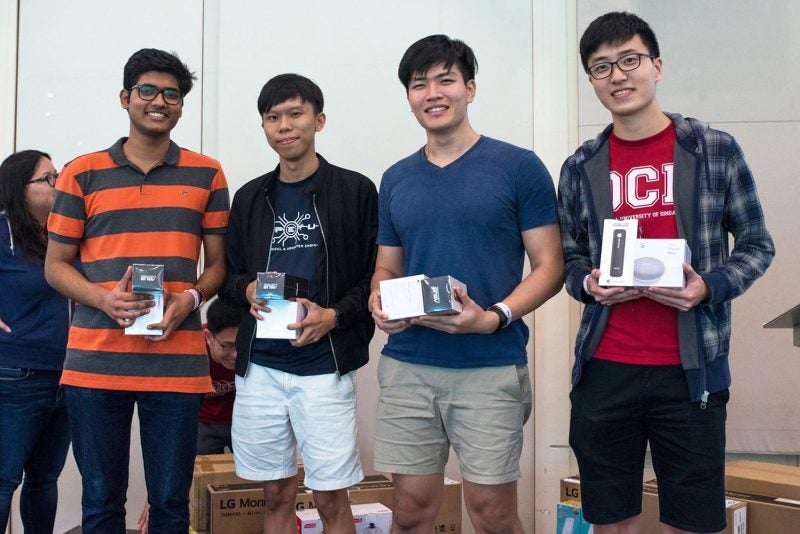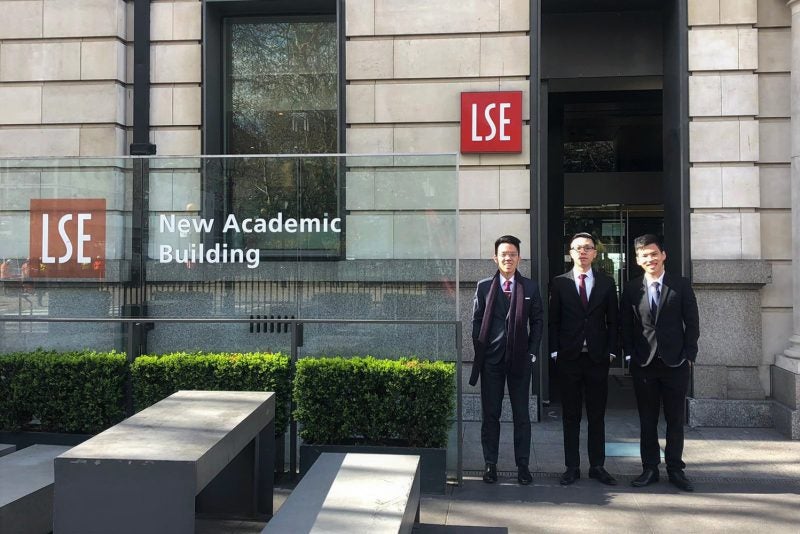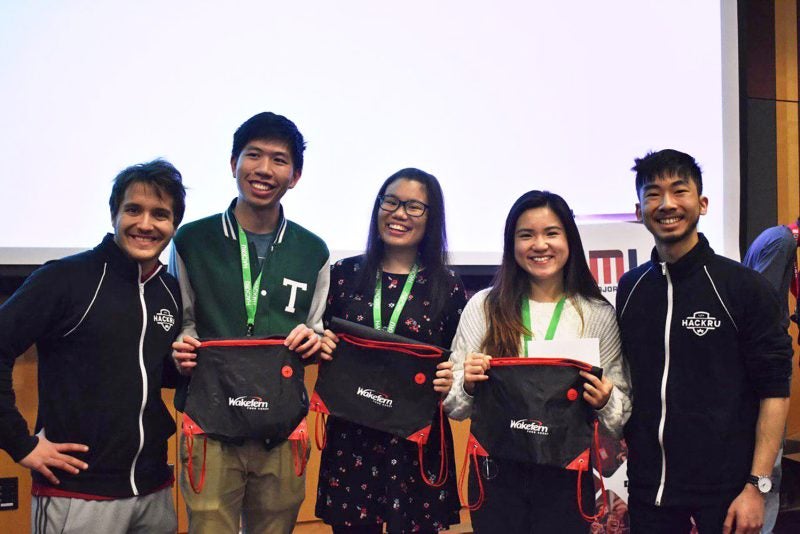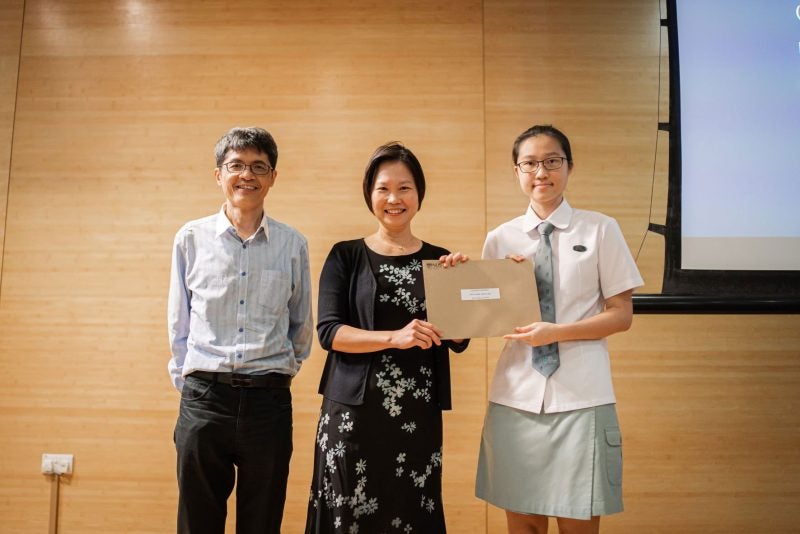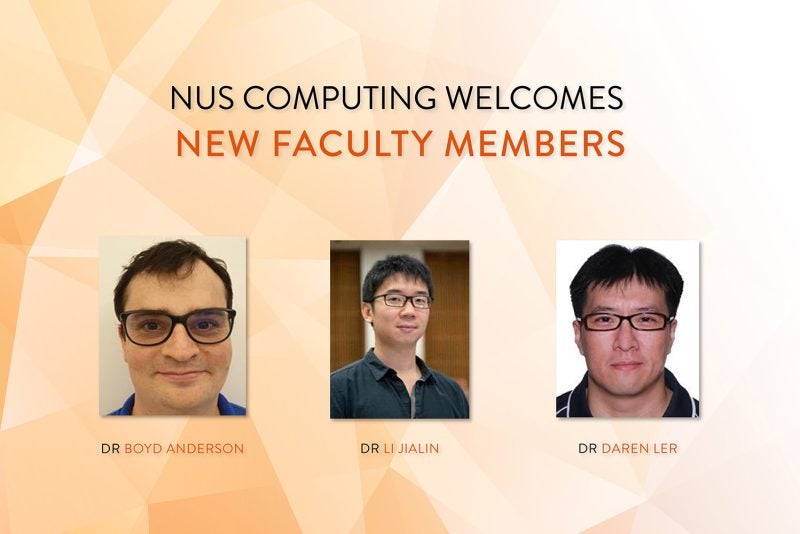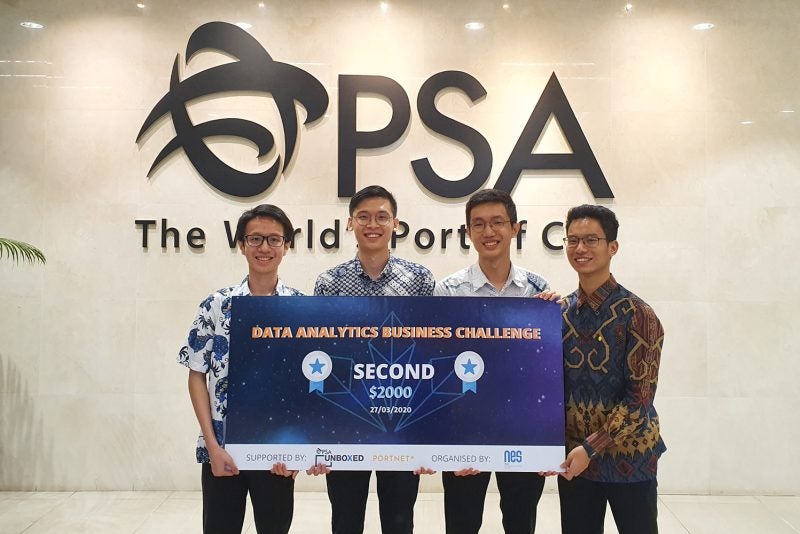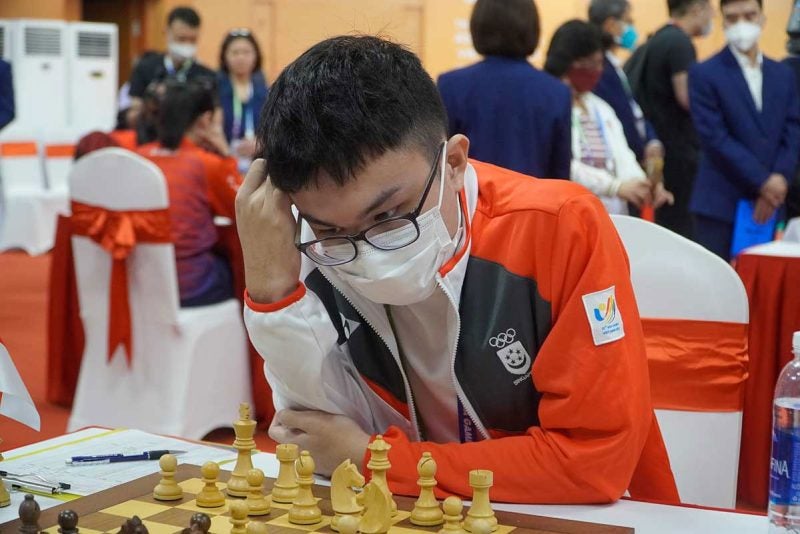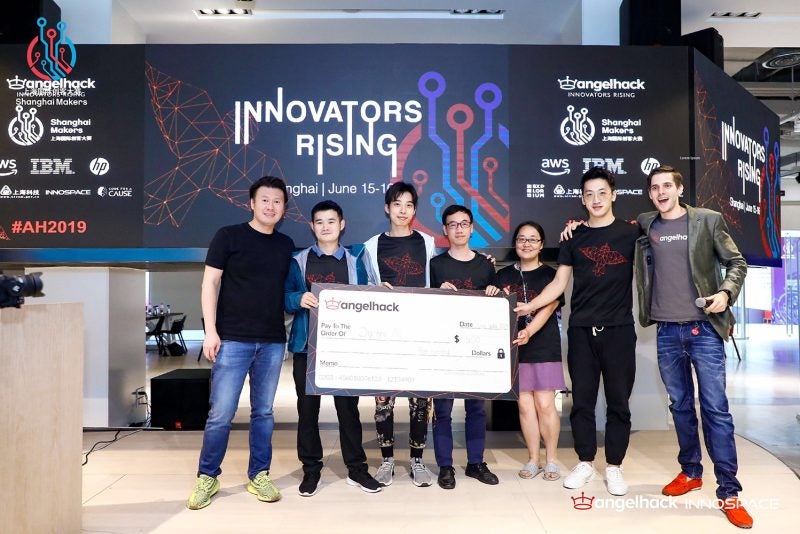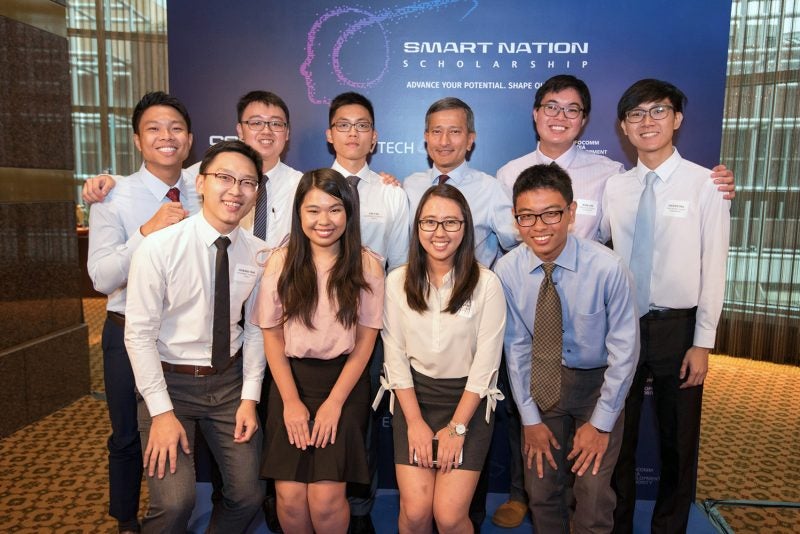28 June 2018 – NUS Computing PhD student Abdelhak Bentaleb won first place in the Excellence in DASH Award and the best student paper award at the 9th ACM International Conference on Multimedia Systems (ACM MMSys) 2018, held in Amsterdam from 12 to 15 June this year.
The ACM MMSys conference is a forum for researchers to present and share their latest research findings in multimedia systems. A total of 30 papers were presented in the ACM MMSys conference, with six papers nominated for the best paper and best student paper awards.
Another 30 papers were nominated for the Excellence in DASH award, sponsored by the Dynamic Adaptive Streaming over HTTP Industry Forum (DASH-IF). Abdelhak’s paper is one of two papers that won first place. The award is conferred to researchers’ whose papers address challenges surrounding the new adaptive bitrate (ABR) streaming technology, called Dynamic Adaptive Streaming over HTTP (DASH). DASH is a next generation video streaming technology that delivers live or on-demand streams over the internet in real-time with the fewest dropouts and least possible buffering. With DASH, video streams can be switched midstream depending on the client’s available network speed, as opposed to buffering when the client’s network is unable to support the quality of video.
Adelhak authored the paper, “Want to Play DASH? A Game Theoretic Approach to Adaptive Streaming over HTTP”, together with Özyeğin University Assistant Professor Ali C. Begen, United Arab Emirates University Professor Saad Harous and NUS Computing Associate Professor Roger Zimmermann. “In the paper, we developed a client-driven ABR scheme that strives to select the best bitrate based on modern game theory,” said Abdelhak.
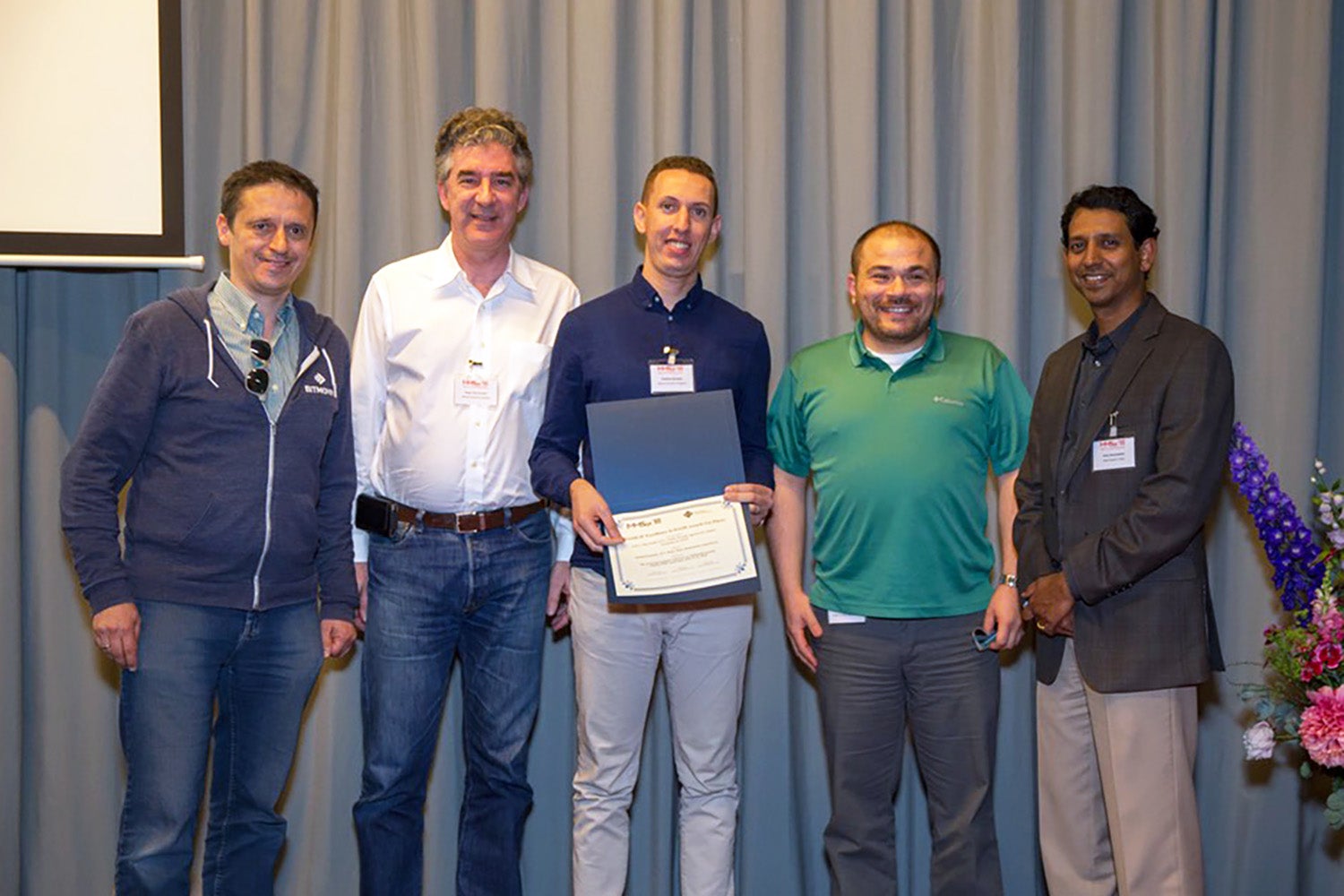
According to the paper, current state-of-the-art ABR schemes operate by detecting a client’s bandwidth capacity and adjusting the quality of the video stream to suit its capacity. However, these systems do not take into account other factors, such as fluctuating network conditions and other DASH players competing for available bandwidth in a shared network. This results in multiple DASH players choosing high bitrates that would collectively strain the network. As such, this would result in video stalls, frequent quality changes and long delays at startup.
Abdelhak and team decided to leverage on game theory mathematical models to formulate an ABR decision process that takes into account these multiple factors. With their scheme, DASH players build an agreement among themselves to decide on an ideal bitrate collectively, instead of optimising one’s own bitrate with no consideration for the requirements of DASH players. This approach resulted in a marked improvement in the viewer’s quality of experience. “Our solution outperforms the best existing ABR schemes, with improvements in viewer experience and video stability by 38.5% and 62% respectively,” said Abdelhak.
“It was an amazing experience to be at ACM MMSys and to learn new aspects and knowledge in my research field. I am grateful to my supervisor, Prof Zimmermann, as well as Prof Begen and Prof Harous for their valuable comments, feedback, discussions and help with the paper,” Abdelhak added.
Abdelhak is a PhD student in Computer Science, under the supervision of A/P Zimmermann. His research focuses on multimedia systems and communication, video streaming architecture and content delivery.

